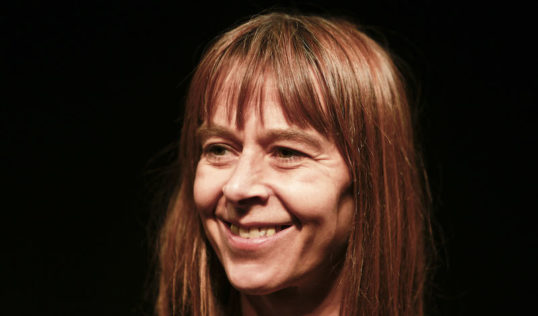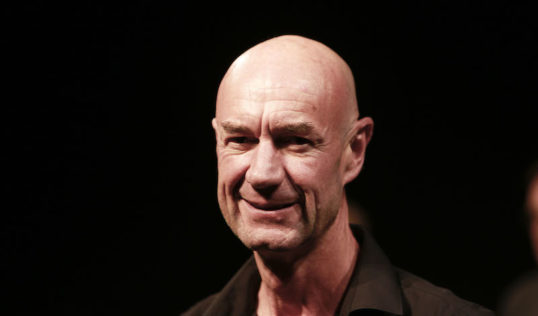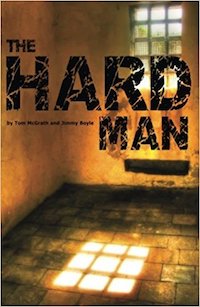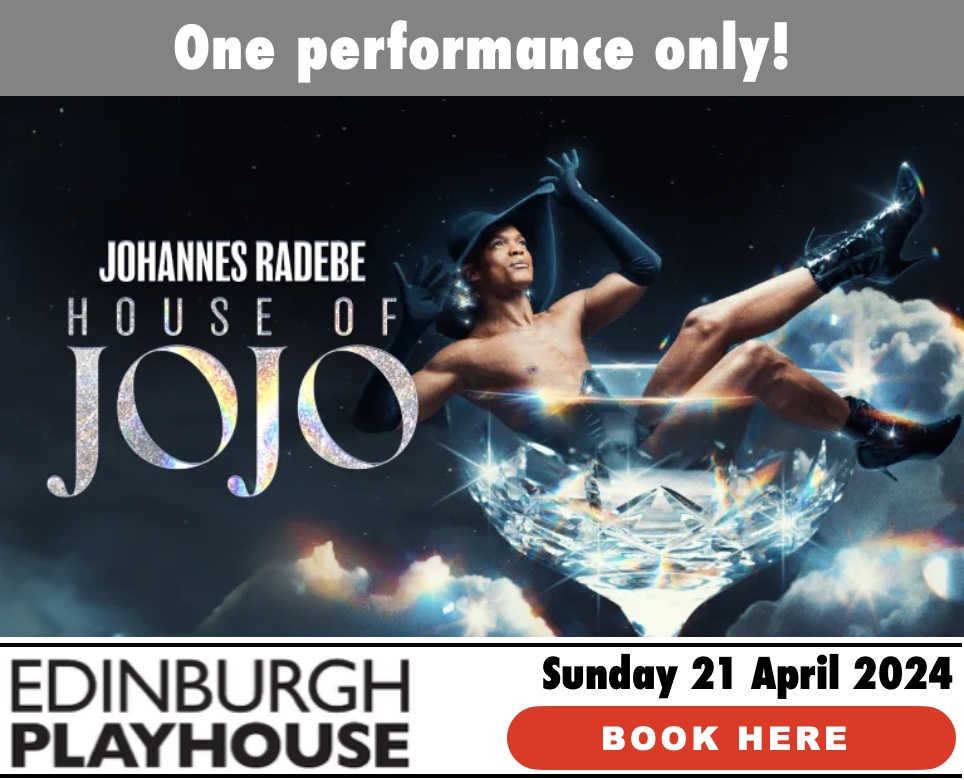The Hard Man
Rehearsed reading
Traverse Theatre: Sat 24 June 2017
Review by Thom Dibdin
Opening up the scope of the Edinburgh International Film Festival’s retrospective on noted Scottish polymath Tom McGrath, the staged script reading of his 1977 play The Hard Man sits perfectly with McGrath’s “explorer” image.
For starters, director Tam Dean Burn cast Kate Dickie in the role of the hard man, John Byrne. It’s not gender reversal, as she is playing as a man, but it is certainly a move which forces you to reexamine your understanding of the character, of his masculinity and the misogyny of his attitude towards his wife.
The play was co-written with Jimmy Boyle, but it would be wrong to regard it as some kind of autobiographical account of Boyle’s life who was still in the Special Unit in Barlinnie prison when he and McGrath met. Rather, it is an exploration of the “question mark” that is Jimmy Boyle, an attempt to understand his role – and that of organised crime – in the structure of society.
Recent productions of the play – notably In Your Face’s fantastic and visceral immersive version seen at the Wee Red Bar in 2014 – focussed on Byrne’s violence and brutality. But while both are vital to understanding the play, the forensic reading of the script which Tam Dean Burn has brought from his cast allows you to see that they are the surface of what is going on here.
In fact, the whole production – the second of three one-off script readings at this year’s EIFF – forces you to look again at its subject. By its nature, it strips away the surface detail of the staging to reveal the structure and architecture of the script beneath, just as the play itself is designed to strip back the surface glint of ultra-violence to reveal the muscle and bones of life beneath.
It is a play of two halves. The first depicts Byrne’s rise from poverty through low-key violence to controlling a Glasgow gangland empire and eventually being jailed for murder. The second dwells on his time in prison, much of it in solitary confinement, lost (literally at times) in a different kind of violent and repressive regime.
sinewy strength
Dickie is immense as Byrne. She exudes a natural power, a sinewy strength that makes you understand both Byrne’s malevolence but also his fortitude, his ability to withstand all that society could throw at him as he lifted himself out of the midden of poverty.
It is in Byrne’s relationship with his long-suffering girlfriend Carol that Dickie’s gender makes the biggest impact. Sarah McCardie puts in an equally strong and convincing shift as the oppressed Carol, who is as frightened of Byrne as any of his other, more arms-length victims. Here, Byrne’s treatment of Carol is less about his shocking attitudes and more about the power that relationship provides him.
If Dickie’s casting is a cracker of a concept, it is in Byrne’s henchmen, Bandit and Slugger, that the reading really grabs an edge over performance. The two, a stage direction adds, are played by the same actors who play Byrne’s jailers, Johnson and Renfrew in the second half: underlining the notion that the two worlds are analogous, that Byrne is as trapped in one as he is in the other.
Tam Dean Burn has packed his ten-strong cast with strong performers. Benny Young returns to the role of Bandit he played in the original Traverse production in 1977, with Martin McCardie as Slugger and Maureen Carr as Maw. Elaine Ellis and Sandra McNeely as the Greek chorus of windae hangers, Maggie and Lizzie, provide a solid wealth of Glasgow demotic, while Martin Docherty has a ball in a variety of smaller but crucial characters.
The whole is punctuated by John Kielty on live percussion. It’s his crash cymbals and almost military drum-roll that mark the passing from one scene too the next. And while he adds the occasional character from his chair, it is when he steps onto the stage as Paisley, the heavy-handed enforcer of the prison, that he really makes his mark.
A strong, intelligent reading which adds to the understanding of one of the important plays of the late 20th century.
Running time two hours, 20 minutes (with one interval).
Traverse Theatre, 10 Cambridge Street, EH1 2ED.
Saturday 25 June 2017. Run ended.
Part of the Tom McGrath element of the Future is History strand of the EIFF.
Details of the Tom McGrath events at EIFF 2017 are here: Tom McGrath @ EIFF 2017.
The whole Future is History programme is augmented by an 84 page booklet written by its curator Niall Greig Fulton which can be accessed in pdf form on the EIFF website here: www.edfilmfest.org.uk/future-history.
Click on the cover to see script at Amazon:
ENDS




















